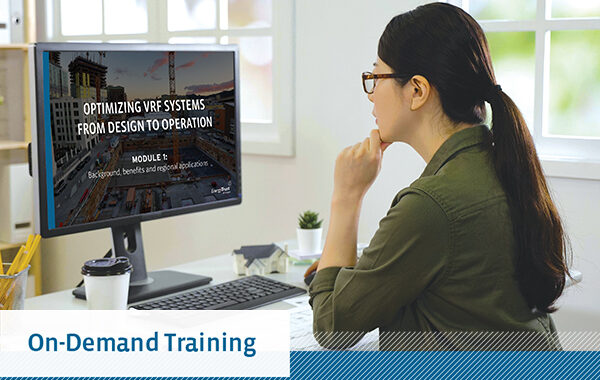On-demand training on variable refrigerant flow (VRF) systems
- This event has passed.

Optimizing VRF Systems from Design to Operation
Register today for the launch of Energy Trust of Oregon’s free on-demand training on variable refrigerant flow (VRF) systems. Participants will gain a greater understanding of VRF, including the background of the technology, design differences in energy-efficiency, financial considerations and more.
This series features four on-demand modules which allow participants to learn at their own pace and access the training when and where it is convenient.
The curriculum is composed of the following:
- Module 1: Background, benefits and regional applications
- Module 2: Design best practices
- Module 3: Financial considerations
- Module 4: Construction and operations
Upon finishing all four modules, you will have the option for a certificate of completion and AIA Oregon and Oregon CCB continuing education credits.
Energy Trust also offers additional training and education opportunities. Learn more about these opportunities today.
